- Home
- Debra Holland
Beneath Montana's Sky: A Montana Sky Novella (The Montana Sky Series Book 0)
Beneath Montana's Sky: A Montana Sky Novella (The Montana Sky Series Book 0) Read online
BENEATH MONTANA’S SKY
by
Debra Holland
FOUR YEARS BEFORE
THE MAIL-ORDER BRIDES OF THE WEST
STORIES
AND
ELEVEN YEARS BEFORE
WILD MONTANA SKY
TAKES PLACE
Copyright © 2014 by Debra Holland
ISBN: 978-1-939813-12-1
Digital Edition
All rights reserved by the author. The reproduction or other use of any part of this publication without the prior written consent of the rights holder is an infringement of the law.
CHAPTER ONE
Sweetwater Springs, Montana Territory
October, 1882
John Carter stood in the cemetery in front of the three graves holding the caskets of the Sanders’ family—his foreman and best friend, Andrew, his wife Dora, and their young daughter Marcy. Beside John, thirteen-year-old Nick Sanders only stared at the ground.
With his face ghost white, so the freckles on his nose stood out, and his blue-green eyes blank—the boy seemed almost too shocked and grief-stricken to comprehend what had happened two days earlier. Nick had remained on the ranch, instead of traveling to town with his family and thus avoided the fatal accident.
John knew all too well about the numbness that came after the initial spiking pain of sudden death. He flicked a glance at Marcy’s small coffin, then just as quickly looked away, unable to bear the sight. His sister’s coffin had been the same size. Old anguish and guilt twisted with fresh pain, and he thought the agony of his feelings might bring him to his knees.
He stiffened, needing to be strong, not only for his godson, orphaned now, but also for the rest of the close-knit community of Sweetwater Springs—many of whom gathered around the graves. As the owner of the largest ranch and the descendent of one of the earliest families to settle in these parts, John was considered a town leader.
A cold breeze blew, bringing the earthy smell of fresh-turned dirt, flapping the black skirts of the teary-eyed women, and ruffling the hair of the men who stood with their heads bowed, their hats held in front of their chests.
The sadness emanating from the mourners was so strong, seeming to hover like storm clouds in the milky-gray sky, thick and heavy and swollen as if with anguished tears. Even Reverend Norton, standing at the head of the three graves, a prayer book in his bare hands, wasn’t unmoved. As the minister recited the burial service, his voice quavered in several places before he took an audible breath to continue.
Nick shuddered, a visible shaking of his wiry body.
John dropped a comforting hand on the boy’s shoulder, so very grateful Nick hadn’t gone with his family on that fateful wagon trip to town. For the hundredth time since he’d heard the news, John asked himself, What could have happened to cause the accident? Did something spook the horses—a panther or a bear? Had something happened to Andrew himself? Did the man suddenly take sick? The road in that spot had been a heavily-forested steep grade, slick with ice. But if Andrew had driven carefully, as John knew without a doubt his friend had, there wasn’t a reason he could see for the cause of the accident. He wondered if they’d ever know the truth.
I should have persuaded them to stay home for a few more days.
But after an initial cold spell, they’d experienced a few weeks of Indian summer, and before being cooped up for the long winter, Dora had wanted to head into town, visit with Mary Norton, the minister’s wife, and go to the mercantile for some shopping. Andrew hadn’t been a man to deny his pretty wife anything. And why should he? The snow had melted, the skies looked clear, the sun was warm for an autumn day.
Reverend Norton, the black frock coat his parishioners had given him the previous Christmas flapping in the wind, closed his prayer book, bringing John back to the pain of the present. The minister’s austere bearded face, made even more harsh with sorrow, belied his gentle tone. “With love in our hearts, we bid a final farewell to Andrew, Dora, and Marcy, knowing they are safe in heaven. We who are left behind will deeply mourn them. May the Lord give us strength and comfort to carry on.” With a nod and a compassionate glance around at his congregation, lingering on Nick, the minister brought the service to a close.
At her husband’s side, Mary Norton dabbed her eyes with a handkerchief. In her other hand, she carried a small bunch of bright autumn leaves, their edges flat from being pressed between the pages of a book. The orange, gold, and burgundy colors contrasted with the browns and grays of the season. She and Dora Sanders, who’d been the schoolteacher before her marriage, had a close friendship, and John figured Mrs. Norton’s pain might be great, indeed.
But the minister’s wife didn’t see Dora every day like I saw Andrew. The two ladies hadn’t grown up together…. John remembered he and Andrew as boys—hunting, fishing, riding, roping, and getting into trouble.
John was no stranger to death, even sudden death. The small burial ground at the ranch held his grandparents, parents, and sister. He, like Nick, was alone. More than anyone, he knew what it was like to stand bereft at an open grave—the last of your family.
A woman sobbed loudly.
Mrs. Norton tucked her handkerchief inside her sleeve and separated the leaves into three small clumps. They quivered in her hands before she tossed each bunch into the graves, where they fluttered down to rest atop the plain wooden caskets.
Under his hand, John felt Nick’s body shake, but the boy didn’t make a sound.
John had to repress a similar shudder before guiding Nick away from the graves. Neither needed to see the dirt tossed over the coffins.
As they moved through the crowd, he tipped his hat and muttered “thank you” to the fleeting touches on his or Nick’s arms…the stammered expressions of condolence.
His cook, Edgar McKnight, had scrounged up a repast for any who might undertake the long drive out to the ranch. But John doubted many would attend. Not that they wouldn’t want to, but with the accident fresh in their minds and the threat of a coming storm in the air, most would wisely choose to remain safe at home.
Better it just be him and Nick and his cowhands—the ones who’d miss Andrew, Dora, and Marcy every day for a long time to come.
The scrape of shovels and the thumping of dirt pouring on the coffins made Nick glance behind him, his expression bleak.
John’s stomach ached as if someone had punched a stone inside him and left it there.
The boy’s my responsibility now.
John had to stand in place of father and mother, a task for which he was woefully inadequate. What the heck am I going to do?
At age thirty-two, he had no training as a parent. The responsibility of raising the boy pressed down on him as the sky did the land, and John felt alone.
CHAPTER TWO
Sweetwater Springs
April, 1883
After a long day of branding the January-born calves, John rode with a group of his cowboys toward the barn, fighting exhaustion and low spirits. Both arms ached from reining the horse and throwing the lasso and his legs from continually urging the gelding after the skittish animals. He’d missed far too many heelers today, having to make second and third attempts to catch the calves’ hind legs. Andrew would have ribbed him mercilessly.
But his friend’s absence was the reason for John’s lack of concentration, and he wasn’t the only one. His cowboys were just as rattled. Branding all the young animals and castrating the bull calves had taken twice as long as usual.
Dusk was settling. A solitary cloud turned go
lden in the purple sky, looking as lonely as he felt right now, even though he rode with men as familiar to him as his battered Stetson. A sharp wind whistled around the group, ruffling the dried grass to show the green shoots underneath. Clumps of snow lingered in the shade of the trees. He tilted his head into the wind to avoid having his hat blow off.
Calves were the lifeblood of the ranch, and from the births the last three months, the ranch was going to have a good season—although plenty could go wrong between now and shipping off the cattle to market on the train. For the first time, the cowhands wouldn’t have to undertake a long cattle drive. The new railroad had changed everything, making life in Montana Territory far easier. He and Andrew had talked of how different the coming year would be with not having to spend the weeks away from the ranch.
With the extra time at home, they’d planned to plant several acres of alfalfa and hay—becoming farmers as well as ranchers. But his friend wouldn’t be here to see the changes. The absence of Andrew’s steady presence at his side not only reminded John of his personal loss but also robbed him of the satisfaction he’d always felt in past years at branding time.
Thinking of Andrew, John glanced over at Nick. The boy rode Skinner, his chestnut gelding. Like John, his head was dipped into the wind. But unlike John, he kept his eyes downcast.
The boy had done the work of a man today. Couldn’t complain about that. Nick had roped better than John, showing a single-minded determination and not even cracking a smile at the comical moments.
Nick had always been on the silent side, although a deep thinker, prone to asking curious or probing questions. But his family’s death had rendered him practically mute. He only volunteered information when necessary, which seemed about once a week. When asked a direct question, he answered with as few words as possible. John had more than a few cowboys like that, but Nick’s reticence was an unsettling change in the boy, who’d retreated like a prairie dog into his hole.
John had felt helpless to comfort the boy after the loss of his family. In the months since the deaths, he’d done everything he could think of to console his godson, to help the boy cope. He didn’t know how to reach Nick, let alone assuage his own grief.
Sometimes, he found his steps turning to the foreman’s little house before he remembered his best friend wasn’t there.
Everyone missed Dora’s friendly smile and the treats she’d bake for them. She’d provided a feminine presence for their gang of cowboys, who’d all respected and maybe had a bit of a crush on the feisty woman. That and her cookies and pies…not things his practical cook tended to indulge in.
And everyone had adored Marcy. His throat tightened remembering her gapped-tooth grin and the rag doll she dragged with her everywhere. Without the presence of womenfolk, the ranch was missing a heart.
John sent another concerned glance at Nick, riding slumped in the saddle next to him. “You worked hard today, Nick.”
The boy nodded, his expression unchanging.
John sucked in a breath before venturing on. “Your father would have been proud.” He hadn’t spoken for Andrew before now. Wasn’t sure how Nick would take it.
This time, the boy’s nod was shorter. He looked down and wouldn’t meet John’s eyes. His Adam’s apple moved as if he swallowed an emotion.
Did I say the right thing? With Nick, John felt he was fording a stream, hopping from one slippery rock to another, apt to slip off into the water that was deeper than he realized.
John pondered the question that had been on his mind ever since the boy had come into his care. How do I help him?
The obvious solution—work too hard to think. God knew they labored hard every day. They’d all thrown themselves into their work, trying to dull the pain. But that remedy wasn’t enough; the boy was lost to them.
He chewed on a new solution Mrs. Norton had hinted to him two Sundays ago. A wife.
Her suggestion had settled in his mind—an idea to mull over on long rides or before he fell asleep at night. Surely, a mother figure for Nick would help the boy. Having a woman around again would do all the men good, including him.
And a wife would be even more of a blessing. Someone to soothe everyone’s grief, take charge of his neglected home, provide him some companionship, and warm his bed. The thought caused his body to heat. Give me children.
Not for the first time, John listed his requirements for a bride: kindness and compassion, the ability to adapt to the hard life of the ranch, attractive, a good companion, and most importantly, a woman who’d love him and whom he could love.
While John instinctively believed the idea of a wife was a good one, the execution of a courtship wasn’t possible.
There’s no such woman in Sweetwater Springs.
In fact, there were no available women in the area, unless you counted Widow Mattis with her seven children and seven teeth in her mouth, or the three fourteen-year-olds, all of whom he’d have to wait on until they grew up to a marriageable age. And he wouldn’t be the only man in the area with his eye on those girls. He’d be thirty-five by the time they were seventeen, a huge difference in age. And he’d have plenty of competition. Probably fifty men in the vicinity of Sweetwater Springs wished for a wife.
Three years would be too late. Nick needed a mother figure now.
I need to go East.
Sixty-something years ago, John’s grandparents had traveled months to reach Montana Territory in a covered wagon. But with the train newly come to the area, John could make the journey back to Boston in a matter of days. Over the years, he’d conducted a sporadic correspondence with his grandmother’s youngest sister, his Great-Aunt Hester, who’d issued many invitations to visit.
A big city holds a multitude of women.
He debated whether or not to take Nick with him. But the boy had experienced enough changes lately, and John was going courtin’, which was no place for his godson. Hopefully it wouldn’t take him long to find a bride who’d fit his requirements, woo her, and bring her home to the ranch. After all, he wasn’t demanding great beauty and wealth.
Great-Aunt Hester can evaluate candidates and single out potential brides. Just like going to a stock auction, ’cept maybe the process will take me a few weeks longer. I’ll leave at the end of April when the branding’s done.
CHAPTER THREE
Boston
April, 1883
Twenty-one-year old Pamela Burke-Smythe approached the ballroom of the Sofit mansion, lent to The Society for Widows and Orphans, searching for her best friend, Elizabeth Hamilton. If the choice had been hers, she would have stayed at home, happily reading. But this evening—in support of the society—was the culmination of many weeks of effort by her and Elizabeth, as well as other members of the organization. She needed to be here tonight, if only to ensure everything went as they’d planned.
For the first hour, Pamela had resolved to avoid conversation and dancing by seeing to the various tasks involved in organizing a charity ball. In reality, the other women could have done some of the last-minute details just as well, but she knew they’d rather greet the arrivals, socialize, and anticipate partners for the dancing. She saw her friend in a group of ladies and walked over to them, exchanging greetings.
Elizabeth pulled her aside. “No one has quite your touch with entertaining, setting a lovely table, and anticipating guests’ pleasure.” She reached up and tucked a wayward tendril of Pamela’s brown hair behind her ear. “Your skills have done much to benefit this evening. But I insist that you do not hide yourself away tonight like you usually do.”
Pamela didn’t answer. Her friend knew her too well.
A flurry of arrivals drew Elizabeth’s attention to the doorway. “I must go. I shall save you a chair by mine, dear Pam. Come as soon as you’re satisfied that everything is ready.”
“I will.” I’m sure I can find plenty to do first. She nodded and waved the other ladies off to their diversions.
For a moment, Pamela watched her friend. Al
though she was one of several hostesses who were greeting the guests, Elizabeth drew all eyes with her blonde beauty, sparkling blue eyes, and gracious manners.
Feeling plain and dumpy, even in an off-white silk gown in almost the latest style, Pamela sighed and turned away to double check on tasks that didn’t really need doing. She crossed the vast ballroom to see if the musicians had the correct order of music and that none of the flower arrangements—hothouse roses, ferns, and baby’s breath—drooped. She descended to the kitchen, walking up and down the long tables to make sure the trays of delectable food were laid out to appeal to the eyes as well as the palate. She oversaw the first of the waiters bringing out trays of champagne glasses. Forty minutes later, she was gratified to know everything was ready for the guests, and the festivities proceeded like clockwork.
Once she’d run out of things to inspect and out of excuses as well, Pamela reluctantly headed back into the ballroom, as a participant this time. She paused in the doorway, hearing the strains of a Strauss waltz. By the light of the three dazzling crystal chandeliers and the sconces on the walls, couples circled the dance floor in each other’s arms, while others stood or sat in the gold Versailles chairs along the edges of the room, talking and sipping champagne.
With satisfaction, Pamela surveyed the packed space. She could barely see the terrazzo floor. The turnout for the charity ball meant more funds to help widows and orphans, which made all the weeks of work worth the effort. With slow steps, she moved along the wall, nodding at people she knew, and searching through the crowd for Elizabeth.
She found her friend on the dance floor, swept in circles by Gregory Markham, who was considered the best dancer of their set of friends, able to move his partner about the floor in a firm but respectful hold, and skillfully turn her at a fast speed that just bordered on shocking their elders. But since he deftly avoided other couples, no one ever complained.

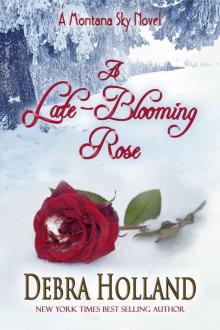 A Late-Blooming Rose: A Montana Sky Series Novel
A Late-Blooming Rose: A Montana Sky Series Novel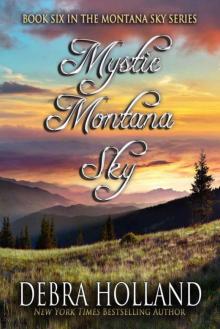 Mystic Montana Sky (The Montana Sky Series Book 6)
Mystic Montana Sky (The Montana Sky Series Book 6)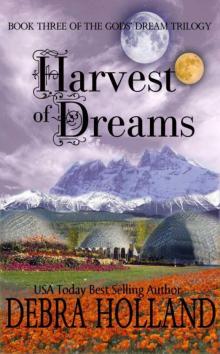 Harvest of Dreams (The Gods' Dream Trilogy)
Harvest of Dreams (The Gods' Dream Trilogy)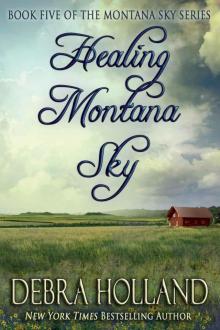 Healing Montana Sky
Healing Montana Sky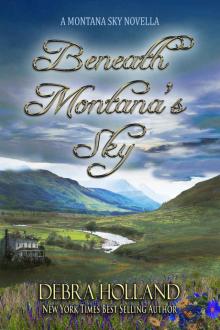 Beneath Montana's Sky: A Montana Sky Novella (The Montana Sky Series Book 0)
Beneath Montana's Sky: A Montana Sky Novella (The Montana Sky Series Book 0)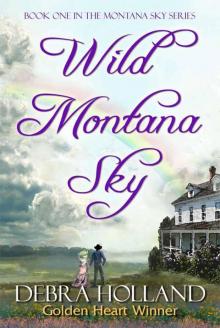 Wild Montana Sky (The Montana Sky Series)
Wild Montana Sky (The Montana Sky Series)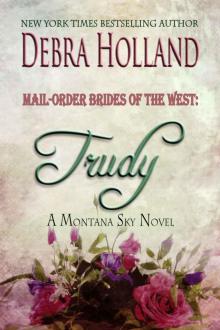 Mail-Order Brides of the West: Trudy (A Montana Sky Series Novel)
Mail-Order Brides of the West: Trudy (A Montana Sky Series Novel)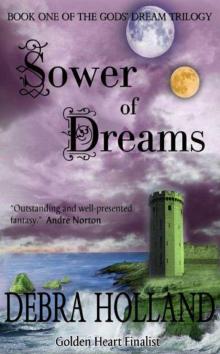 Sower of Dreams (The Gods' Dream Trilogy)
Sower of Dreams (The Gods' Dream Trilogy)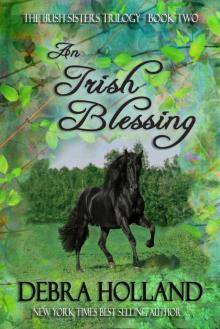 An Irish Blessing: The Irish Sisters Trilogy (Montana Sky Series)
An Irish Blessing: The Irish Sisters Trilogy (Montana Sky Series)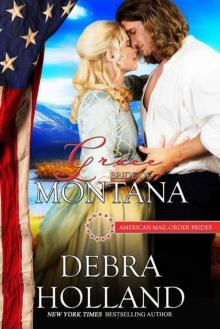 Grace: Bride of Montana (American Mail-Order Bride 41)
Grace: Bride of Montana (American Mail-Order Bride 41)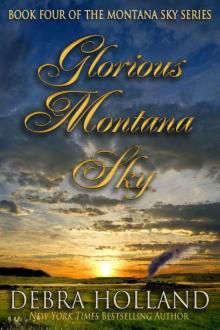 Glorious Montana Sky (The Montana Sky Series)
Glorious Montana Sky (The Montana Sky Series) Montana Sky Christmas: A Sweetwater Springs Short Story Collection
Montana Sky Christmas: A Sweetwater Springs Short Story Collection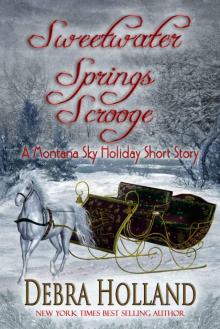 Sweetwater Springs Scrooge: A Montana Sky Holiday Short Story (The Montana Sky Series)
Sweetwater Springs Scrooge: A Montana Sky Holiday Short Story (The Montana Sky Series) MONTANA SKY 07.5: Angel In Paradise
MONTANA SKY 07.5: Angel In Paradise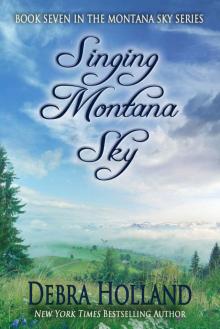 Singing Montana Sky (The Montana Sky Series Book 7)
Singing Montana Sky (The Montana Sky Series Book 7)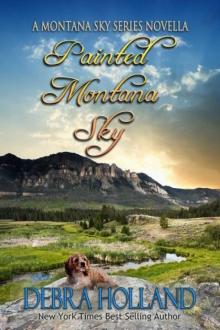 Painted Montana Sky: A Montana Sky Series Novella
Painted Montana Sky: A Montana Sky Series Novella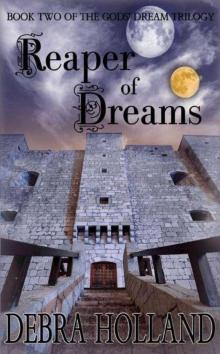 Reaper of Dreams (The Gods' Dream Trilogy)
Reaper of Dreams (The Gods' Dream Trilogy)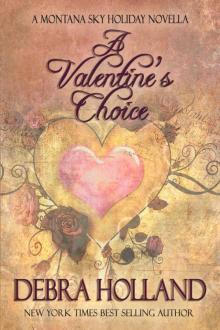 A Valentine's Choice: A Montana Sky Series Holiday Novella (The Montana Sky Series)
A Valentine's Choice: A Montana Sky Series Holiday Novella (The Montana Sky Series)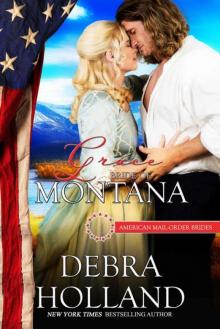 Grace_Bride of Montana
Grace_Bride of Montana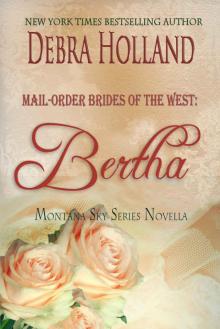 Mail-Order Brides of the West: Bertha: A Montana Sky Novella (Montana Sky Series)
Mail-Order Brides of the West: Bertha: A Montana Sky Novella (Montana Sky Series)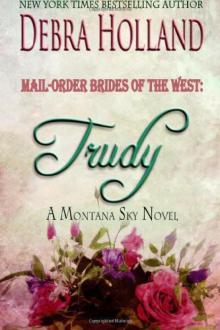 Trudy
Trudy